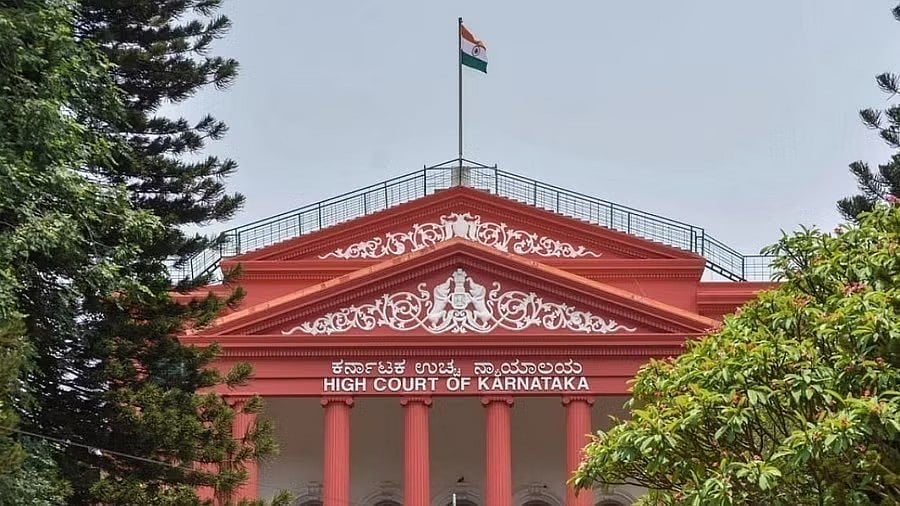
The Karnataka High Court.
Credit: DH File Photo
Bengaluru: The Karnataka High Court has directed the Principal Secretary, Revenue department to ensure that the injunction orders (not to alienate) granted by civil courts are reflected in the appropriate column of the revenue records to prevent unnecessary litigation and safeguard the integrity of judicial orders.
“Revenue authorities, as custodians of land records, are duty bound to comply with orders of the civil court and ensure that rights declared by judicial forums are given full effect. Failure to do so would not only amount to willful disobedience of court orders but would also encourage illegal transactions in derogation of the rights of the litigating parties,” Justice Sachin Shankar Magadum said while allowing the petition filed by petitioner from Anekal taluk in Bengaluru rural.
The petitioner Suvarna, a resident of Hennagara Village in Jigani Hobli, had filed a partition suit before the civil court. After considering the application under Order 39 of the Civil Procedure Code (CPC), the civil court had granted an injunction restraining the defendants from alienating the suit property. The petitioner had requested the Special Tahsildar to make entry of the injunction ‘not to alienate’ in the revenue records in the ‘other rights’ column. The Special Tahsildar declined to do so citing a circular stating that the revenue department was not a party to the suit.
Justice Sachin Shankar Magadum noted that the principles governing the grant of injunctions, particularly in cases of ‘not to alienate’ orders are well-settled in law. The court said that an injunction restraining alienation serves to maintain the status quo, preventing unscrupulous parties from frustrating the decree that may ultimately be passed in the suit.
“Revenue records, including the Record of Rights, serve as critical documents reflecting existing legal rights, and the refusal to incorporate injunction orders merely because revenue officials were not party to the proceedings is an abdication of duty. Such reasoning not only undermines the authority of the civil courts but also paves the way for fraudulent transactions and multiplicity of litigations, which the injunction orders seek to prevent. Hence, the argument that revenue authorities must be made parties to a suit before they can act upon an injunction order is wholly untenable and contrary to established legal principles,” the court said.
The court quashed the endorsement issued by the Special Tahasildar, Anekal, and directed the authorities to incorporate, within two weeks, the injunction granted by the civil court in favour of the petitioner in the "other rights" column of the revenue records.